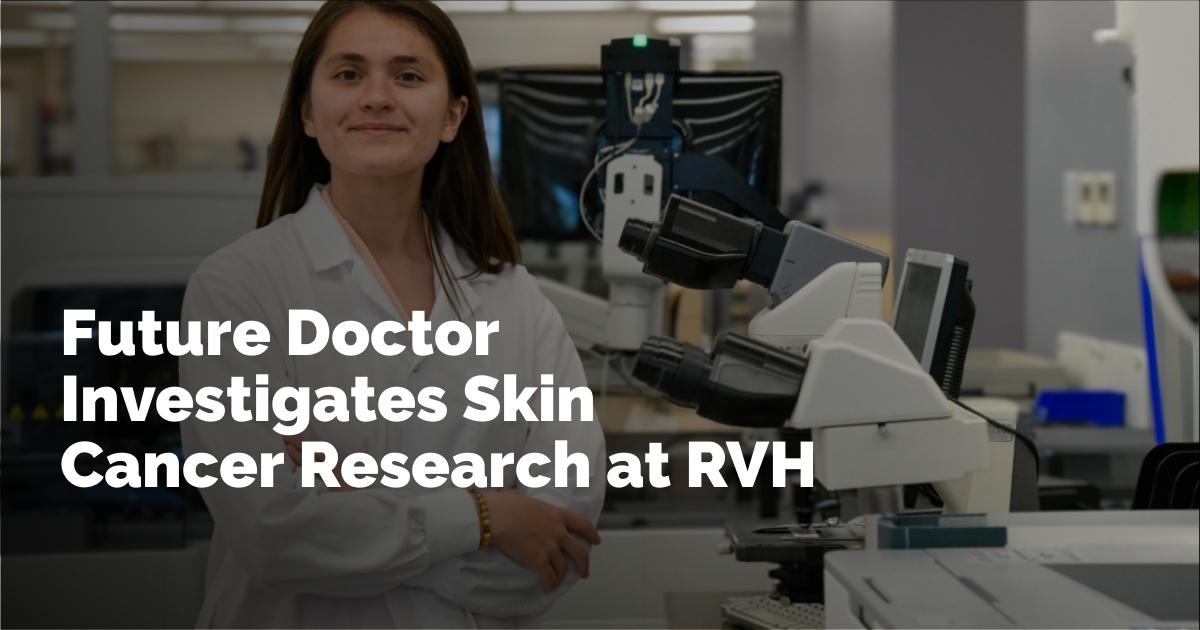Medical Student Investigates Skin Cancer Care Disparities
Growing up in Barrie, Elsa Salathiel was all too familiar with the challenges her community faced in healthcare access. Now, as a third-year medical student at University College Dublin, she has returned to her roots to make a meaningful impact on patient care at Royal Victoria Regional Health Centre (RVH). As a recipient of the prestigious Laura E. Crook Scholarship, she is focusing her research on the disparities in wait times for melanoma surgery between rural and urban regions, and the potential benefits brought by RVH's innovative skin cancer biopsy clinic.
The Importance of Early Detection in Melanoma
Melanoma, a rapidly progressing form of skin cancer, underscores the critical need for prompt diagnosis and intervention. Statistics reveal that early detection significantly improves survival rates, yet this is easier said than done, especially for individuals living in rural and remote areas who often face substantial barriers to accessing timely healthcare services. When distance and resource scarcity are added to the equation, these challenges become even more pronounced.
Salathiel's research aims to shed light on whether the geographic inequities in accessing melanoma treatment are a contributing factor to poorer health outcomes. By meticulously analyzing patient data, she hopes to determine if those living in rural communities face longer waits for surgery compared to their urban counterparts and assess how RVH’s specialized clinic might be altering this dynamic.
RVH’s Innovative Skin Cancer Biopsy Clinic
The RVH’s skin cancer biopsy clinic offers a streamlined pathway for diagnosis and treatment, potentially leveling the playing field for rural patients. Traditionally, individuals from these areas face extended wait times due to logistical challenges and limited healthcare infrastructure, which can critically delay diagnoses and subsequent treatments. However, RVH’s model integrates a faster diagnostic process, connecting patients directly to a team of specialists, which could serve as a potential blueprint for other regional hospitals aiming to enhance early skin cancer detection.
Dr. Laura Crook, a retired family physician and the namesake of Salathiel's scholarship, praised the research initiative for its potential to inform better resource allocation and care strategies. The Laura E. Crook Scholarship was specifically designed to empower community health research and support emerging medical professionals like Elsa who are determined to address health inequities directly.
The Broader Implications of the Study
In 2021, the Ontario Cancer Advisory Committee conducted a comprehensive review which highlighted the need for more hospitals across the province to emulate RVH’s approach. The findings from Salathiel’s study could be instrumental in measuring the success of such initiatives in reducing delays and improving patient outcomes. If the research validates the effectiveness of RVH’s clinical model, it may encourage widespread adoption, thereby narrowing the healthcare accessibility gap between rural and urban populations.
Dr. Renee Hanrahan, Chief of Surgery and RVH research supervisor, emphasized the significance of Salathiel's work, noting how it plays a crucial role in their ongoing efforts to enhance patient care. "Understanding the nuances in healthcare access is essential for tailoring interventions that meet the diverse needs of the population," she remarked.
Paving the Way for Future Research
The enthusiasm of young researchers like Salathiel is palpable, offering a glimpse into the future of medical research and its potential to enact meaningful change. Applications for RVH’s Summer Student Research Program are scheduled to open soon, marking an opportunity for more students to join the ranks of clinical researchers committed to improving healthcare delivery and outcomes.
Salathiel’s efforts are a testament to the power of community-focused research, underscoring how localized studies can have broader implications on healthcare policy and practice. Her findings might not only affirm the benefits of specialized regional clinics but also inform future healthcare strategies aiming to ensure equitable access for all patients, regardless of residence.
By exploring these healthcare disparities, Elsa Salathiel’s research could pave the way for significant advancements in how skin cancer care is delivered across Ontario, eventually influencing healthcare practices nationwide. The hope is to create a more inclusive and effective healthcare system where geography no longer predicates the quality or timeliness of care received.
출처 : Original Source

